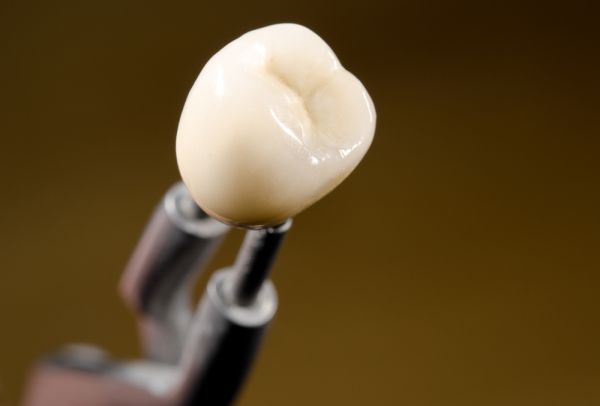Is a Dental Crown Really Necessary? Four Questions to Ask Your Dentist

Unless a dental crown is really necessary, you likely want to avoid going through the procedure. Getting a crown takes at least two appointments and can be a painful and stressful experience. That said, dental crowns can be a tremendous benefit to many patients, so you should be open to the recommendation of your dentist.
There are multiple reasons a dentist may recommend a dental crown. Some situations make the crown unavoidable, while others can be solved with alternatives. The most common reasons for a dental crown are root canals, tooth decay and tooth damage. Your dentist may have recommended that you get a full crown, but sometimes there are other options.
Ask a dentist : Four questions about dental crowns
Here are four questions to ask before committing to a dental crown.
Can I get a filling instead?
You may have options other than a dental crown; for example, you may opt for a filling instead. Fillings can sometimes replace crowns, depending on the amount of filling needed. Crowns become inevitable when a filling makes up 50% of a tooth or more. Fillings of this size can be dangerous because they leave the tooth weakened and vulnerable to irreparable damage. Be aware that fillings do not guarantee that you will not need a crown later on.
What material should my crown be made from?
If a crown is truly your best option, you will then want to decide on your materials. Newer ceramic materials such as zirconia can provide a strong and esthetic restoration for the molars with similar amount of tooth removal to metal crowns. Crowns are commonly made from ceramic, porcelain-fused to metal, gold or metal alloys. Each has its advantages and disadvantages regarding aesthetic appeal, durability and strength.
Ceramic crowns are typically used for front teeth and can blend more naturally into your smile. Porcelain-fused to metal is a slightly more durable option for those needing a stronger crown that still resembles their natural teeth. Gold and metal alloys are the strongest options that last the longest, but they do not resemble natural teeth. Metal crowns require the least amount of tooth to be removed prior to fitting.
Is a root canal needed?
Dental crowns and root canals go together quite frequently. In fact, it is rare that a root canal will not require a dental crown afterward. Root canals weaken the tooth’s resistance, and a crown may be necessary to protect it. However, not all crowns require a root canal prior to their application. If there is not a deep crack, damage or decay, a root canal may not be needed.
Can I get veneers instead?
For less serious tooth damage, porcelain veneers or dental bondings may be sufficient to protect the tooth. Veneers and dental bondings can restore the proper shape to a tooth with minor chips or discoloration. Tooth inlays or onlays may also be a viable treatment for teeth with shallow damage. If you are considering either of these options, you should speak with a cosmetic dental specialist.
Let's get started
Request an appointment here: https://www.casasadobesdentistry.com or call Casas Adobes Dentistry at (520) 365-0559 for an appointment in our Tucson office.
Recent Posts
A dental restoration can stop the progress of dental problems from decay or injury. Dental fillings can treat mild to moderate cavities. Your dentist will assess your teeth and see how many need fillings. Here are the things to expect before you get this dental restoration.The dentist will examine the patient’s teeth and see how…
Gum disease is also known as periodontal disease. This is a condition that causes inflammation of the tissue around the patient’s teeth. It is caused by bacteria building up in the area. Keep reading to learn about some of the symptoms of gum disease.Periodontal disease is a progressive condition, meaning it gets worse over time.…
Replacing missing teeth with dentures restores much of their functionality. However, dental appliances are limited in what they can do compared to natural teeth. While you should be able to return to eating many of the foods that you enjoyed before you lost your teeth, some could cause problems for you. You should avoid eating…
Anyone who has a broken or missing tooth can benefit from dental restoration. Dental restoration fixes or replaces teeth to improve oral health or function. This is a broad dentistry category, from simple restorations such as fillings to more extensive restorations such as dental implants or dentures. Some restorations offer cosmetic benefits; however, their main…


